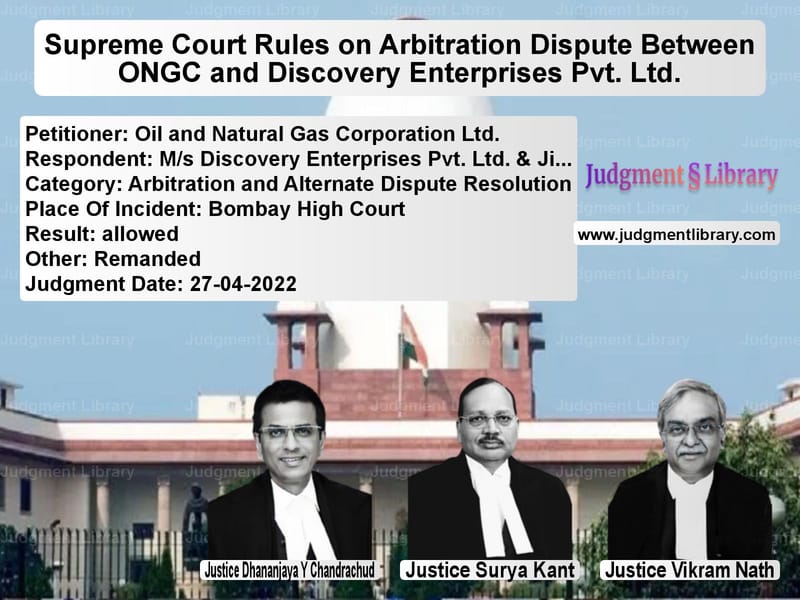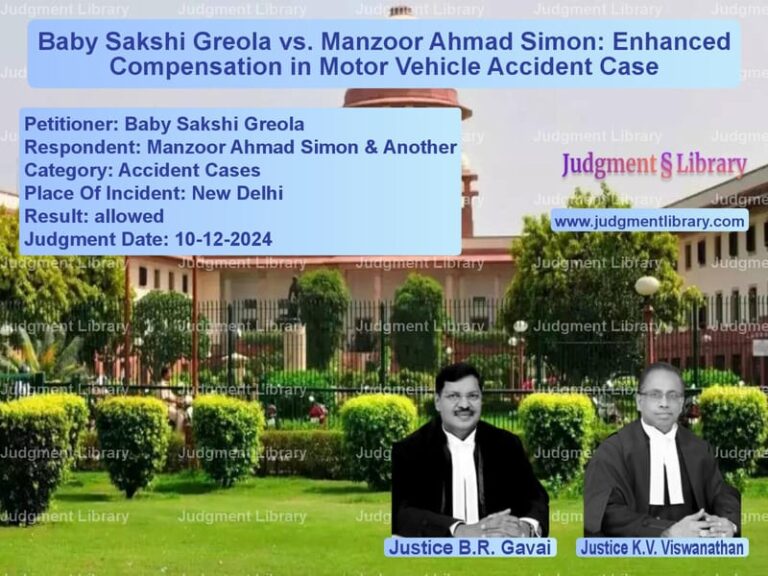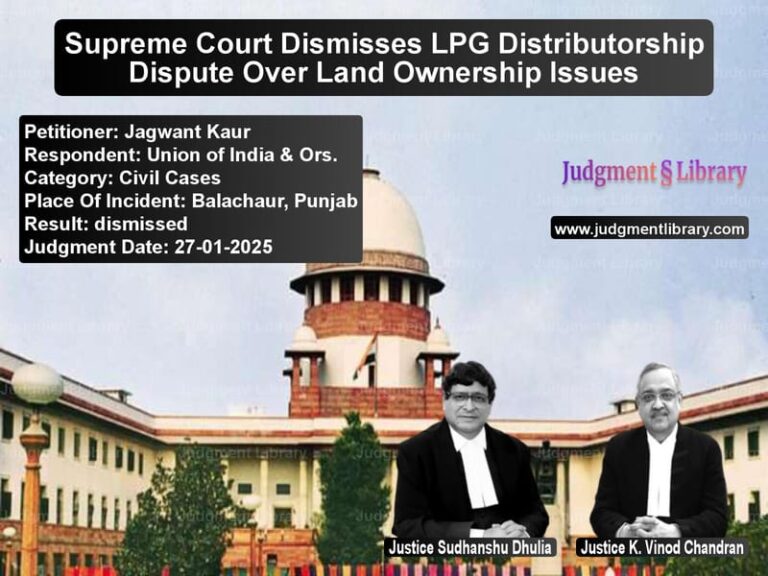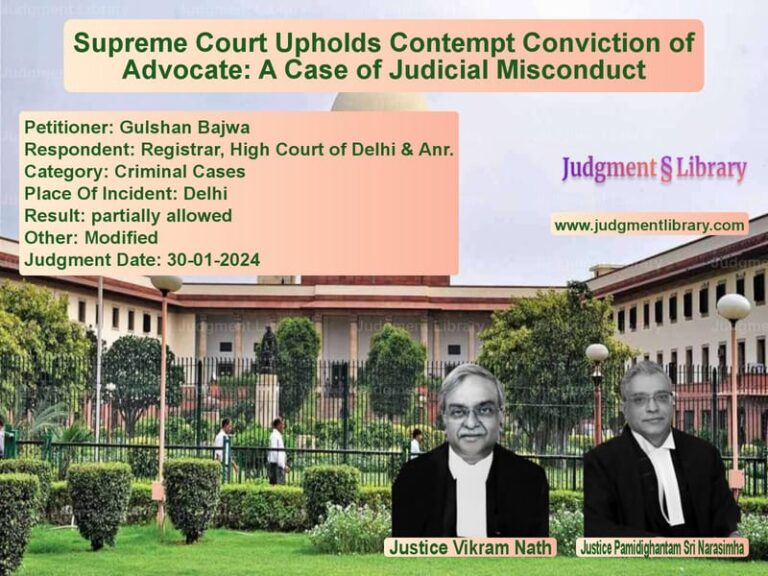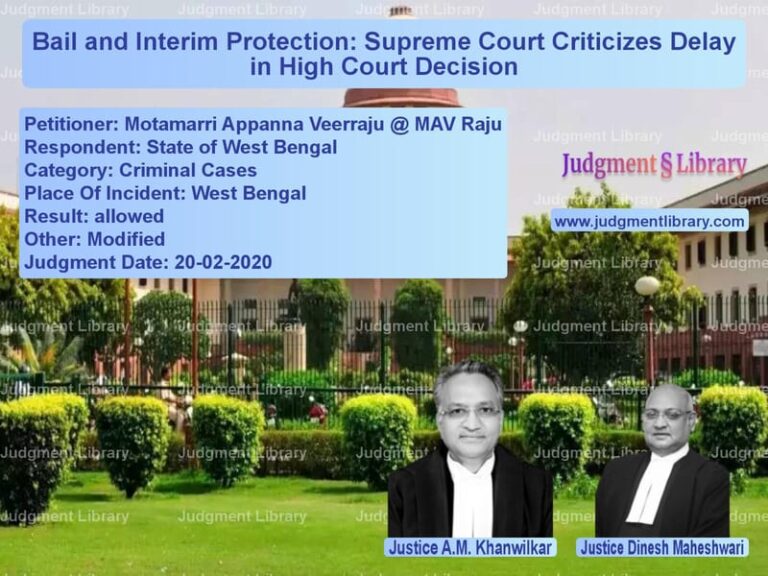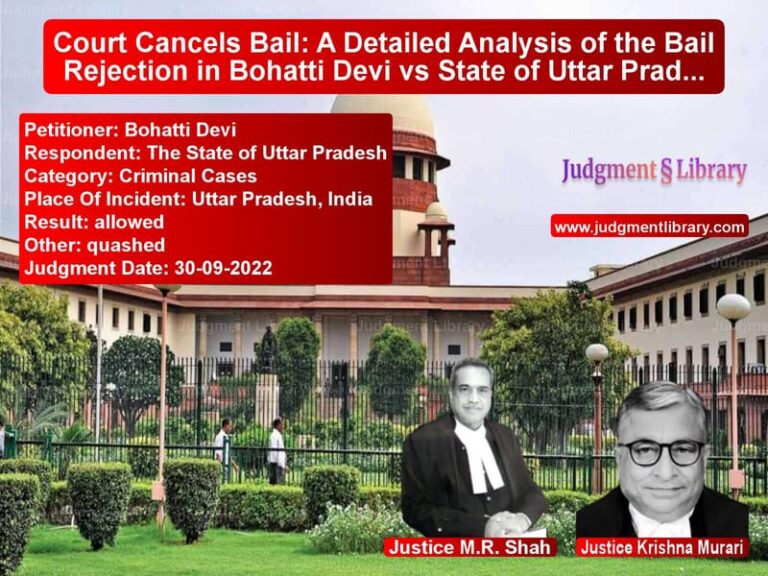Supreme Court Rules on Arbitration Dispute Between ONGC and Discovery Enterprises Pvt. Ltd.
The Supreme Court of India recently adjudicated a significant arbitration dispute in the case of Oil and Natural Gas Corporation Ltd. (ONGC) vs. M/s Discovery Enterprises Pvt. Ltd. & Jindal Drilling and Industries Ltd.. This case brought forth crucial issues regarding the group of companies doctrine, corporate veil lifting, and the scope of arbitration agreements, particularly when non-signatory entities are involved.
Background of the Case
The dispute originated from a contract dated March 22, 2006, between ONGC and M/s Discovery Enterprises Pvt. Ltd. (DEPL). The agreement pertained to the deployment and operation of a floating production, storage, and offloading vessel to facilitate oil and gas exploration. ONGC later initiated arbitration proceedings against both DEPL and Jindal Drilling and Industries Ltd. (JDIL), alleging that JDIL was an alter ego of DEPL and should be held accountable for contractual breaches.
ONGC’s contention was that JDIL had played an active role in executing the contract and had undertaken significant responsibilities related to its performance. However, the arbitration tribunal ruled that JDIL was not a party to the arbitration agreement and thus could not be subjected to the arbitration process. This decision was upheld by the Bombay High Court, prompting ONGC to approach the Supreme Court.
Key Legal Issues
- Whether JDIL, a non-signatory entity, could be compelled to arbitrate under the group of companies doctrine.
- The validity of the arbitration tribunal’s exclusion of JDIL from arbitration proceedings.
- Whether ONGC’s claims against JDIL necessitated corporate veil lifting to establish liability.
Arguments Presented
Petitioner (ONGC)
- ONGC argued that DEPL and JDIL had a common business interest, and JDIL had actively contributed to the contract’s execution.
- It contended that JDIL’s involvement in the contractual obligations made it a de facto party to the arbitration agreement.
- The group of companies doctrine should apply, binding JDIL to the arbitration agreement.
- JDIL and DEPL shared common directors, office space, and financial interests, demonstrating a high degree of functional unity.
- The arbitration tribunal’s ruling was erroneous as ONGC was not given the opportunity to produce relevant documentary evidence.
Respondents (DEPL & JDIL)
- JDIL countered that it was a legally distinct entity and had no obligations under the contract between ONGC and DEPL.
- The arbitration agreement explicitly named only DEPL, and as such, JDIL could not be compelled to arbitrate.
- ONGC’s claim of financial and operational unity between DEPL and JDIL was not supported by adequate evidence.
- Being a non-signatory, JDIL had no privity of contract with ONGC and could not be subject to arbitration.
Supreme Court’s Analysis
The bench comprising Justices Dhananjaya Y Chandrachud, Surya Kant, and Vikram Nath carefully examined the legal aspects of the case. The Court’s ruling considered multiple factors, including international precedents, prior Indian case law, and the underlying principles of arbitration jurisprudence.
1. Group of Companies Doctrine
The Court reviewed its earlier decisions in Chloro Controls India Pvt. Ltd. v. Severn Trent Water Purification Inc. and Cheran Properties Ltd. v. Kasturi & Sons Ltd., affirming that non-signatory entities could, in certain circumstances, be bound by arbitration agreements. However, this doctrine requires:
- A direct relationship between the signatory and non-signatory.
- A mutual commercial intent to bind the non-signatory.
- A composite transaction where separate enforcement would be unfeasible.
Based on the evidence, the Court found a prima facie case for further scrutiny under this doctrine.
2. Natural Justice and Procedural Fairness
The Court noted that the arbitration tribunal had failed to consider critical documentary evidence before ruling JDIL out of the arbitration. It held:
“The arbitration tribunal’s premature exclusion of JDIL without permitting full discovery and inspection of records constituted a violation of due process.”
3. Lifting the Corporate Veil
The Supreme Court recognized that lifting the corporate veil was sometimes necessary to prevent companies from evading legal obligations. It observed:
“A corporate entity cannot be used as a shield to avoid arbitration when there is substantial evidence of interconnected commercial interests.”
Supreme Court’s Judgment
- The Court set aside the arbitration tribunal’s ruling that JDIL was not a party to the arbitration.
- A fresh arbitration tribunal was to be constituted to examine JDIL’s jurisdiction in light of new evidence.
- The case was remanded to the Bombay High Court for further proceedings on JDIL’s liability.
Significance of the Ruling
This judgment has far-reaching implications for arbitration law and corporate accountability in India. It establishes that:
- Non-signatories may be bound by arbitration agreements under the group of companies doctrine.
- Courts must ensure that procedural fairness is upheld in arbitration proceedings.
- The corporate veil can be lifted in cases where an entity is being used to circumvent legal obligations.
Conclusion
The Supreme Court’s ruling in ONGC vs. Discovery Enterprises Pvt. Ltd. strengthens arbitration jurisprudence in India by ensuring that non-signatories cannot use corporate structuring to evade legitimate contractual obligations. By emphasizing fairness, due process, and commercial reality, this judgment will serve as a precedent in future disputes involving complex corporate transactions.
Petitioner Name: Oil and Natural Gas Corporation Ltd..Respondent Name: M/s Discovery Enterprises Pvt. Ltd. & Jindal Drilling and Industries Ltd..Judgment By: Justice Dhananjaya Y Chandrachud, Justice Surya Kant, Justice Vikram Nath.Place Of Incident: Bombay High Court.Judgment Date: 27-04-2022.
Don’t miss out on the full details! Download the complete judgment in PDF format below and gain valuable insights instantly!
Download Judgment: oil-and-natural-gas-vs-ms-discovery-enterp-supreme-court-of-india-judgment-dated-27-04-2022.pdf
Directly Download Judgment: Directly download this Judgment
See all petitions in Arbitration Awards
See all petitions in Dispute Resolution Mechanisms
See all petitions in Enforcement of Awards
See all petitions in Institutional Arbitration
See all petitions in Commercial Arbitration
See all petitions in Judgment by Dhananjaya Y Chandrachud
See all petitions in Judgment by Surya Kant
See all petitions in Judgment by Vikram Nath
See all petitions in allowed
See all petitions in Remanded
See all petitions in supreme court of India judgments April 2022
See all petitions in 2022 judgments
See all posts in Arbitration and Alternate Dispute Resolution Category
See all allowed petitions in Arbitration and Alternate Dispute Resolution Category
See all Dismissed petitions in Arbitration and Alternate Dispute Resolution Category
See all partially allowed petitions in Arbitration and Alternate Dispute Resolution Category

